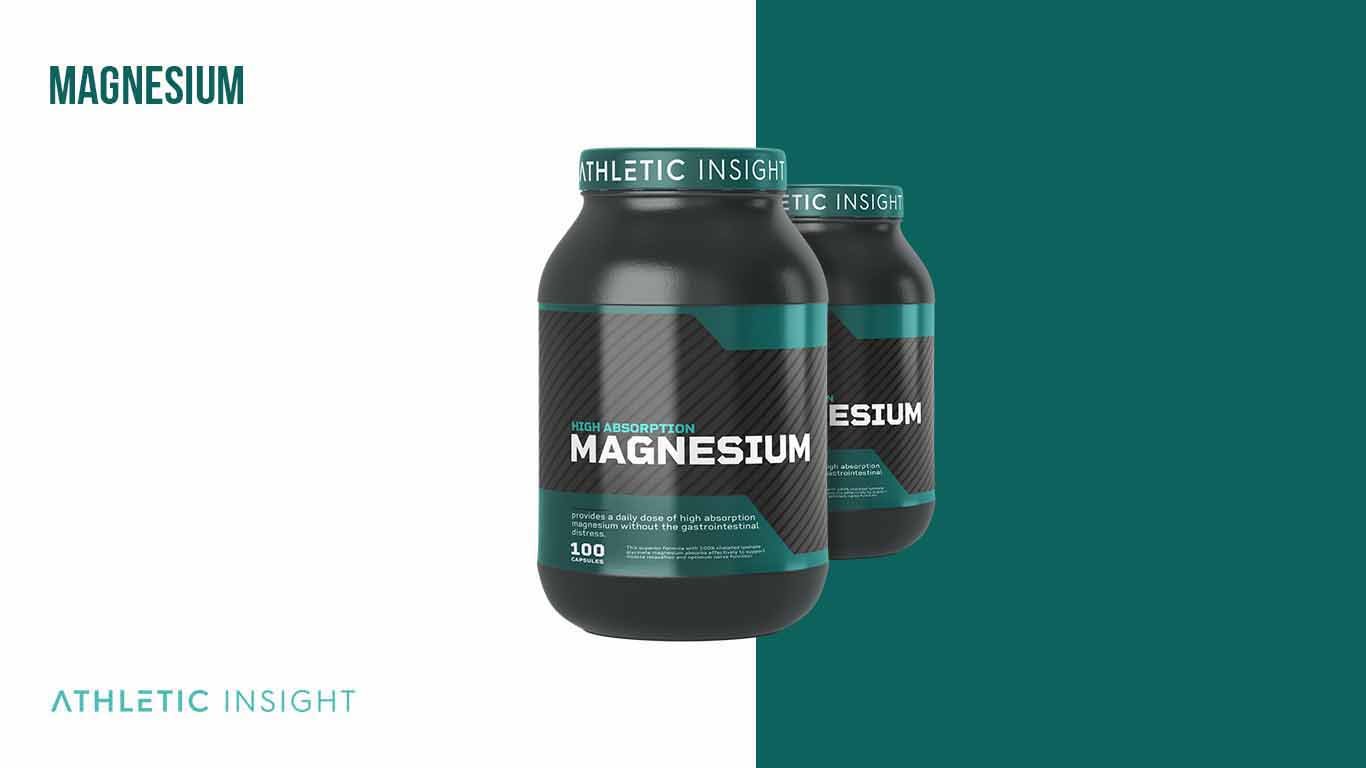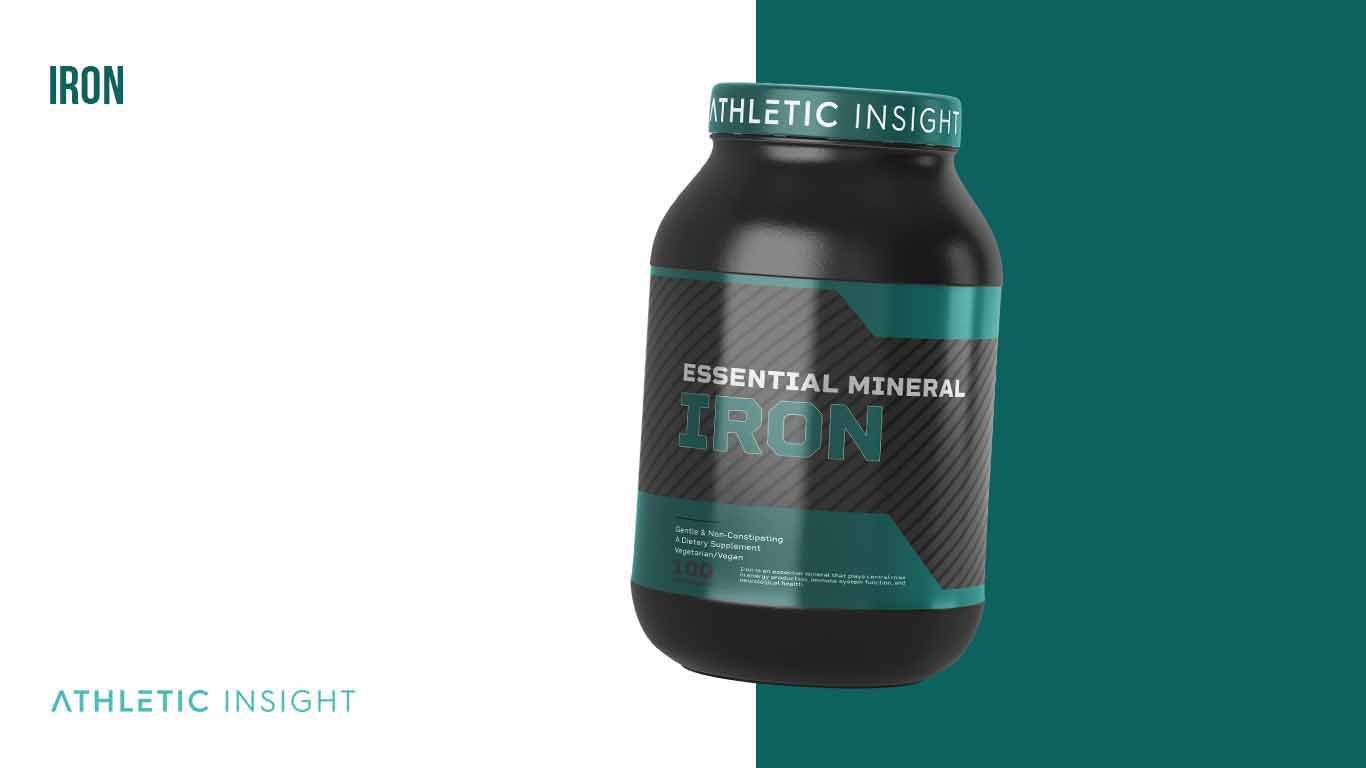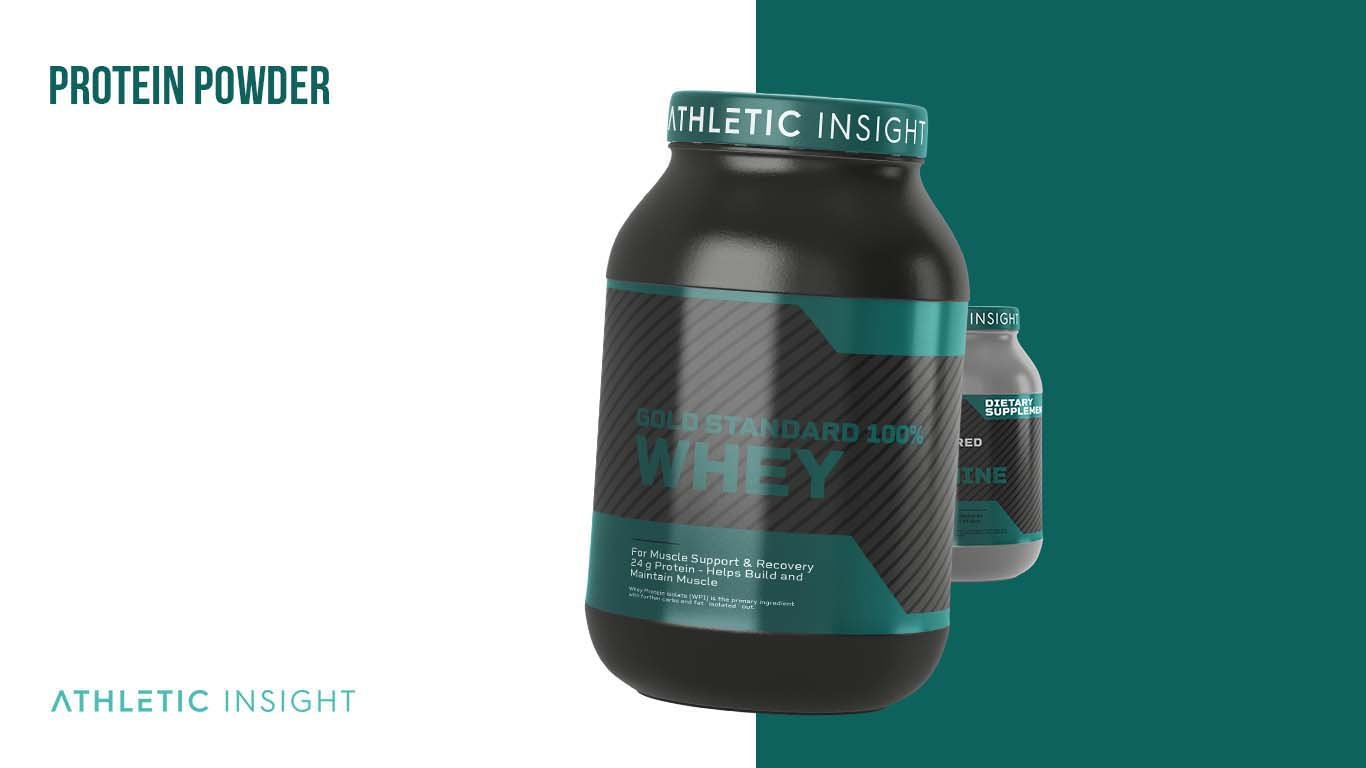Meeting the body’s nutritional needs when fasting can be challenging. Thus, consuming dietary supplements is a viable option to prevent a deficiency in the essential minerals and vitamins that an intermittent fasting regime may otherwise be lacking.
The best supplement for intermittent fasting must aid in the promotion of weight and fat loss while maintaining optimum energy levels. Some natural supplements reduce the appetite, while others impart the feeling of false fullness. Not only this, but the best supplements will be low in calories, particularly sugar, and be available at an economical price.
For many, intermittent fasting is a way to improve glycemic control and insulin sensitivity. Many people ask, “can you take vitamins during fasting”? The answer is yes; certain mineral and vitamin supplements help shed extra pounds by improving the insulin response in the body.
Each supplement plays an essential role, but here are the top three supplements for fasting. Magnesium is the overall best supplement because it keeps energy levels up while regulating muscle and nerve function. Magnesium is a type of electrolyte and a vital mineral that performs numerous functions and processes in the human body.
Iron is the best supplement for maintaining energy levels. Iron is another mineral the body requires for various critical functions. It is an essential element for producing red blood cells, and the lack of it might affect nutrient absorption in the muscles and tissues, resulting in low energy levels and digestive problems.
Turmeric is a relatively common spice and a flowering plant within the ginger family. This supplement is the best antioxidant and can be highly beneficial when fasting to lose weight as it suppresses the fat tissue growth that leads to weight gain.
Athletic Insight Top 5 Products
- Magnesium >>> Best Magnesium Supplement
- Creatine >>> Best Creatine Supplement
- Probiotics >>> Best Probiotics Supplement
- Folic Acid >>> Best Folic Acid Supplement
- Iron >>> Best Iron Supplement
1. Magnesium
Electrolytes are necessary for the optimal working of the body. Magnesium is an essential mineral responsible for several critical body functions, like maintaining brain and heart health, helping regulate muscular contractions, and aiding in protein synthesis.

Magnesium can be a viable supplement to promote weight loss by maintaining insulin sensitivity. As per a systematic review, magnesium supplementation has great potential to improve the insulin sensitivity of the muscles. It reduces insulin resistance, manages the glycemic profile, and plays a part in weight loss (especially in people with metabolic disorders). Magnesium deficiency can lead to fatigue, cramps, and overall weakness.
Magnesium supplements are available in different forms. Capsule and tablet forms are common. However, powder and liquid forms are also available. The best magnesium supplements commercially available include BioEmblem Triple Magnesium Complex, Nature-Made Magnesium Oxide Supplement, and Nature Vitality Calm.
The most affordable of the supplement products is the Nature Made 250 Mg magnesium oxide supplement which costs around $5.50 for a 100-tablet supply.
The maximum daily dose of magnesium is 350mg. Magnesium intake should not exceed this value as it may lead to side effects like nausea or diarrhea. But does magnesium break a fast? Magnesium does not provide any energy, so it is safe to consume even during a fast.
2. Creatine
Creatine is an amino acid naturally present in the muscles. Creatine supplementation has gained wide popularity as a pre-workout supplement because it can help boost muscle mass and strength. Individuals adopting the pause-eat routine of intermittent fasting want to convert the flabby fat into lean mass.
An effective way to promote muscle growth is to take creatine supplements. The monohydrate compound of creatine (creatine monohydrate) is potent in promoting muscle growth. Bodybuilders use creatine supplements for increasing workout endurance. Supplementing creatine also improves athletic performance.
On average, 10-15 grams of supplement daily is safe and does not cause any side effects. Creatine does not carry calories, so taking it during an intermittent fasting regimen will not break a fast. The only side effects noted are stomach cramping and diarrhea.
Bare Performance Nutrition Creatine Monohydrate, Gnarly Sports Nutrition Creatine, and Throne Creatine are some of the best creatine supplements to take while fasting, costing around $35- $40.
3. Probiotics
Probiotics refer to the good bacteria in the gut that ensure digestive health. Probiotics help strengthen the immune system, alleviate lactose intolerance symptoms, and reduce the risk of chronic ailments.
Taking probiotics during intermittent fasting is a good idea as it improves mental health and mood. A lot of people undergoing fasting feel anxious with an empty stomach.
A 2020 randomized (PRO FAST trial) revealed that probiotics such as Lacticaseibacillus rhamnosus HN001 probiotic effectively improve glycemic index and reduce weight loss in prediabetes patients. The probiotics show promising results when taken with intermittent fasting.
While probiotics are generally safe, it is best to consult a primary care physician before taking these probiotic supplements to discuss any pre-existing medical conditions or a weak immune system.
The best probiotic supplements include Seed, Bloom Nutritional Green Superfood, Physician’s Choice Probiotics 60 Billion, and Garden for life. These supplements cost between $20- $40.
4. Folic Acid
Folate is a vitamin important for the neural growth of fetuses. Folic acid is given to pregnant women to prevent neural tube defects. It plays an important part in the maturation of red blood cells and DNA repair.
Folic acid deficiency can lead to megaloblastic anemia and derange blood sugar levels. The deranged blood sugar levels can hinder the process of weight loss. As per a 2021 systematic review, folic acid supplementation significantly improves different markers of the glycemic index. Therefore, it is a good micronutrient for intermittent fasting.
1mg of folic acid is the recommended daily dose, and anything above that amount might result in adverse effects like nausea, diarrhea, bloating, stomach pain, or skin reactions.
Folic acid supplements are available in the form of capsules and gummies. Nutricost folic acid, Nature Made folic acid, and Nature’s Bounty folic acid are well-known folic acid brands that cost between $5- $7 for one pack.
5. Iron
Iron deficiency is linked to low levels of red blood cells, i.e., iron deficiency anemia. Therefore, iron supplementation can play a vital role in the oxygen delivery capacity of the body to the tissues.

Individuals wanting to tone their bodies tend to put in some extra effort to achieve the desired results. To enhance exercise capacity during an intermittent fasting regimen, it may be helpful to supplement with iron. Studies reveal that athletes taking iron supplements have better energy expenditure. Supplementing iron also reduces muscle fatigue.
MegaFood is a popular iron supplement brand that costs around $30. Nature’s Bounty and Nature Made iron are also superb options for iron supplements with a price tag of $6. Potassium iodide capsules, when taken with food, have maximum absorption.
The recommended daily dose of iron for adults is 8mg. Values are more for pregnant women (27mg). Iron overloading can cause side effects like nausea, diarrhea, or even damage to different tissues.
6. Amino Acids
Amino acids are the building blocks of the body. Most of the human body is composed of proteins, the main component of muscles and bones. Therefore to build muscle, it is imperative to take in amino acids. Leucine, isoleucine, valine, etc., help promote muscle growth.
Amino acid levels of the body fall during a 24-hour fasting intervention. Thus, it is best to take amino acid supplements to keep going. The decrease in amino acids is linked to the depression-like state of fasting. People often experience improved mental health and the strength to continue intermittent fasting with amino acid supplementation. Taking amino acid supplements during fasting can also relieve mental and physical fatigue.
However, consuming high levels of amino acids can induce side effects, including abdominal pain, bloating, nausea, or diarrhea.
Double Wood Supplements, Triquetra, and NOW Sports are trusted and potent amino acid supplement brands that can help boost muscle growth. The average price of amino acid supplements is between $23 and $28.
7. Iodine
The mineral iodine is needed in small amounts in the body. It is an essential mineral that ensures the optimal working of the thyroid gland. This gland plays a role in producing hormones that regulate the optimal working of the body. Iodine is consumed in the production of the thyroxine hormone. It also improves cognition in children, and iron supplementation is recommended for pregnant women.
Research shows that iodine deficiency leads to delayed brain development. Iodine can alter the metabolic rate.
According to the WHO, the recommended dosage of iodine should be between 100 micrograms/liter to 300 micrograms/liter. Potassium iodide is the most frequently consumed form of iodine. Too much iodine can lead to sore teeth and gums, stomach upset, or a burning sensation in the mouth or throat.
Mary Ruth’s Nascent Iodine Liquid Drops, J. Crow’s Lugol’s Solution, and Life Extension Sea-Iodine are good options to increase iodine intake. The price range for iodine supplements is $7- $28.
8. Chromium
Many people wonder, “do fasting supplements work”? The answer is yes, as chromium is an exceptional supplement for fasting.
Chromium effectively drops blood glucose levels and increases insulin sensitivity. Chromium supplementation has immense benefits for type 2 diabetics. Chromium tends to push the body into hypoglycemia, so taking it when breaking the fast is recommended. Chromium picolinate is the prevalent form of supplementation that has multiple health benefits.
Managing obesity by hunger-suppressing supplements is now being adopted readily. Chromium supplementation reduces appetite and cravings, which can help carry on intermittent fasting. As per a study, chromium picolinate relegates hunger levels and fat cravings. It was found in another study that chromium picolinate reduces binge eating and promotes weight loss.
Carlyle Ultra Chromium picolinate, Nature’s Bounty Chromium picolinate, and Chromium picolinate 1000mcg are some affordable and effective commercial supplements.
Adult men and women should not exceed 35 mcg of chromium per day. At very high doses (greater than 1000 mcg), chromium supplementation can worsen insulin sensitivity and pose problems. Chromium intake’s side effects include headaches, mood disruptions, and allergic responses. Pregnant and breastfeeding mothers should avoid taking chromium.
9. L-Tyrosine
Like other amino acids, L-tyrosine is essential to building proteins in the body. Tyrosine produces different hormones, i.e., dopamine, adrenaline, melanin, and thyroid. L-tyrosine supplementation strengthens the body against stress and anxiety.
In addition to cognitive improvement, this particular amino acid pumps up athletic performance. Research shows that tyrosine supplementation increases endurance and exercise capacity.
The amino acid tyrosine can interact with other drugs, such as levodopa and thyroid hormones. L-tyrosine should not be taken in quantities of more than 200mg per day. Nutricost L-Tyrosine NOW Supplements L-Tyrosine and Thorne L-Tyrosine are some trusted brands, available at about $14.
It is important to note that tyrosine supplements might cause adverse reactions like insomnia, heartburn, headaches, or stomach upset. Tyrosine doesn’t break a fast, so taking it during a fasting regimen can improve overall mood.
10. Prebiotics
Good bacteria in the human gut need to feed to thrive. Prebiotics are nutrients that promote good bacteria growth in the gut. The compounds do not carry any calories, so they are safe for consumption even during a fast.
Prebiotic supplements keep people healthy and away from chronic gut disorders (gastrointestinal disorders). Consumers have also noted improvements in immune and nervous system performance. However, large doses can cause stomach gas, diarrhea, or abdominal pain.
Dr. Tobias’ Prebiotics, Prebiotics for Advanced Gut Health, and Hyperbiotics Organic Prebiotic Powder are highly reliable prebiotic supplements that cost around $26. However, brands such as Thorne and Ora Organics are the most trusted products on the market.
11. Vanadium
Like chromium, vanadium is another mineral that causes drops in blood sugar levels. The best time to take these minerals is after breaking the fast. Studies suggest that vanadium increases insulin sensitivity of the fat (adipose) tissues while decreasing appetite. The ultimate result of this effect is loss of body fat.
It was found in another study that vanadium induces fat loss and improves the lipid profile (triglyceride, cholesterol, HDL, LDL levels) of the body. Vanadium supplements are potent in enhancing weight loss and controlling hunger. Thus, vanadium can elevate the effects of intermittent fasting.
Higher doses of vanadium might result in unwanted side effects like nausea, diarrhea, stomach pain or gas, or vomiting.
Nutricost Vanadium + Chromium Vegetarian Capsules and Olympian Labs PSN Vanadyl Sulfate are good sources of vanadium. The per-packing cost of Vanadyl Sulfate ranges from $13- $23.
12. BCAAs
Amino acids are vital components in the body’s complete structure. Branched-chain amino acids (BCAAs) are a group of essential amino acids that have defined roles. The list of BCAAs includes leucine, isoleucine, and valine.
The amino acid group is a powerful supplement that can be taken during intermittent fasting. It ticks the two crucial boxes of muscle growth and weight loss. Consumers have also noted a reduction in fasting-induced fatigue.
A 2019 meta-analysis concluded that branched-chain amino acids enhance athletic/exercise performance. The weight loss effect of BCAA supplements is also gaining popularity nowadays, and athletes are recommended to take amino acids for fat loss and lean mass increase.
When BCAA supplementation is paired with vitamin B6, an attenuated waist-to-hip ratio is expected. So, taking BCAAs while intermittent fasting can enhance the results. However, it is crucial to know that excess consumption can put at risk of heart disease, mood disorders like depression, and loss of coordination.
Some popular and well trusted brands that sell BCAAs include Thorne, Optimum Nutrition, Transparent Labs, and Crazy Nutrition. The average cost of the supplements is $1 per scoop, but some budget friendly options exist below this threshold.
13. Protein Powder
Protein is the building block of bodies, playing critical roles like building and repairing cells and tissues. A healthy body has more protein (muscles) and less fat. Bodybuilders use protein powder to reach the ideal physique and lean mass. Protein powder can contain different types of proteins, including whey, soy, casein, hemp and pea proteins.

- Whey
- Soy
- Casein
- Hemp
- Pea
When paired with protein powders, restrictive dietary interventions lead to evident reductions in waist circumference and improvement in blood fasting glucose levels. Whey protein supplementation significantly improves fat and body weight indicators. It also reduces cardiovascular disease risk in the obese and overweight.
A healthy adult’s recommended daily protein intake is about 46- 56 grams. Large amounts of protein powder can cause frequent bowel movements, bloating, acne, or an upset stomach.
The reliable organic protein powder brands include Thorne, Transparent Labs, Dymatize, Ora Organics and Crazy Nutrition. However, the most famous brand is Optimum Nutrition Gold Standard 100% Whey Protein Powder, costing about $50 on average.
14. Zinc and Copper
Zinc and copper are minerals that offer many health benefits. Supplements that contain zinc and copper have a lot of importance in shedding those extra kilos. As per a study, significant improvement in waist circumference is seen with zinc and copper supplementation.
Supplementation of these trace elements leads to a reduction in oxidative stress. According to a randomized controlled trial, zinc supplementation for three months improved lipid profile and insulin resistance in obese patients. Copper is involved in the production of bones and tissues. So, adding zinc and copper to an intermittent fasting routine helps remove excess fat while improving bone density.
Some popular brands that sell Zinc products include BrainMD, Double Wood Supplements, Bulletproof and Solaray which are all cost-effective options to increase zinc and copper intake in the body, available at a price tag between $10-15 on average.
The recommended daily dose for zinc is 8-11mg for adults, while the value for copper is 1100 mcg to 1400 mcg. It is recommended to take these minerals with food. Large amounts of the mineral can result in stomach pain, nausea, vomiting, headaches, and other symptoms.
15. Vitamin A
The fat-soluble nutrient, i.e., vitamin A has been considered essential for normal eye health. Carotenoids and vitamin A possess strong antioxidant properties. The vitamin is needed for optimal fetal growth too.
A deficiency of vitamin A can seriously increase the risk of infection and mortality in children. Therefore, incorporating vitamin A into a fasting routine can be a good idea as it benefits overall health.
The daily dose of vitamin A should not exceed 900 mcg. Anything over that can have side effects like skin irritation or perhaps serious consequences for overall health, including liver damage or bone thinning.
Bronson Vitamin A, Pure Encapsulated Vitamin A, and NOW Supplements Vitamin A are good commercial preparations for $7 to $13. Fasting and intermittent fasting vitamins work together to improve general health.
16. Turmeric
The yellow herb turmeric is an efficient antioxidant and anti-inflammatory substance. Curcumin is the herb’s main bioactive ingredient with numerous health benefits. The most noticeable property of curcumin (in turmeric) is the reduction of weight and fats.
Experimental evidence suggests that curcumin directly interacts with adipose tissues. The chemical compound inhibits the differentiation of adipose cells or fat cells.
According to a randomized controlled trial, turmeric positively influences weight management among obese/overweight individuals. When paired with piperine, curcumin leads to positive body fat modulation.
What sets turmeric apart from other intermittent fasting supplements is that it prevents weight regain after cessation of caloric restrictions. Therefore, people can maintain weight even after halting the fasting diet.
As a safe supplement, turmeric typically causes mild side effects (if any), including nausea, dizziness, or an upset stomach.
Turmeric Curcumin with Bioperine 1500mg, Nature’s Bounty Turmeric with Back Pepper Extracts, and Turmeric Curcumin Capsules are exceptional intermittent fasting support supplements. Turmeric supplements typically cost between $18 and $28.
17. Vitamin B and C
Water-soluble vitamins B and C will prevent fatigue and energy deficiency during fasting. Vitamin B12 is important for metabolism, while vitamin C possesses exceptional antioxidant properties, promotes gum growth and aids in the healing/repair of the body.
As for vitamin B supplements, there are some significant findings in regards to benefits and effects to be aware of. First, lower than normal levels of vitamin B (B12) in the body cause vitamin B deficiency anemia. Second, studies show that branched-chain amino acids (BCAAs) and vitamin B attenuate the waist-to-hip ratio.
The recommended daily dose (according to NIH) of vitamin B12 is 2.4 mcg. The maximum consumption limit of vitamin C is 2000mg per day, and the recommended daily dose is 75-90mg. Higher doses can lead to headaches, nausea, vomiting, skin rashes, and more.
Super B-Complex, Nature Made Super B Complex + Vitamin C Tablets, and Liveable Vitamin B Complex with Vitamin C (gummy supplements) are effective vitamin B and C supplement products. On average, the supplements cost $11- $22. The Super B-complex is the best multivitamin for fasting.
18. Vitamin K
Vitamin K is known for its role in normal blood coagulation. Vitamin K deficiency is linked to gastrointestinal disorders. Research suggests that vitamin K (K1 and K2) has many health benefits, including impacts on cognitive impairment, cardiovascular disease, and neurocognitive disorders. It reduces fracture incidence in post-menopausal women.
Supplementation of vitamin K can be beneficial during intermittent fasting. The fat-soluble vitamin helps in reducing insulin resistance (especially in older men). Astonishingly, vitamin K supplementation also promotes fat burning. A reduction in visceral and abdominal fat is observed with vitamin K supplementation.
The recommended daily intake (RDI) of vitamin K for adults is 65- 80mcg. Adults can take vitamin K1 (phylloquinone) or K2 (menaquinones) supplements. MK-4 is also an effective supplemental form of vitamin K.
Life Extension Super K, NOW Supplements, and Vitamin K2 are some famous vitamin K brands. Vitamin K Triple Play contains good amounts of vitamin K1, K2, MK4, and MK7. The average cost of these supplements lies between $10 and $20.
What Is Intermittent Fasting?
Intermittent fasting is a restricted eating pattern in which one fasts and eats at specific periods. The 16/8 method is the most prevalent method in which an individual stays hungry for 16 hours and eats meals during the 8-hour time bracket.
The dietary strategy aims to help lose weight and improve glycemic index and lipid profiles. It brings several other wellness benefits like enhancing heart health, boosting thinking and memory, reducing inflammation, and keeping chronic diseases at bay.
How Do I Take Supplements When Fasting?
Adults can take vitamins and supplements in various forms such as capsules, pills and powder.
- Capsules
- Pills
- Powder
Capsule/pill form does not affect insulin levels. However, the gummy and chewable forms can stimulate insulin production as they might contain caloric ingredients.
When Should I Take Supplements During a Fast?
The ideal time to take supplements and retain the best absorption during a fast is during the eating window. Minerals like iron and zinc might lead to an upset stomach if taken without food.
Water-soluble Vitamins B and C can be consumed while fasting as the body can absorb them without food.
What Are the Effects of Drinking Supplements While Doing Intermittent Fasting?
Consuming water-soluble vitamins while fasting can lead to some side effects. For example, consuming B-complex vitamins on an empty stomach might induce feelings of nausea in some individuals. The best supplement to drink while fasting is LMNT’s electrolytes.
Drinking supplements while fasting that contain BCAAs, multivitamins, protein powder, or added sugars (pectin, cane sugar, etc.) are likely to break the fast and induce an insulin response.
What Is a Must Supplement When Doing Intermittent Fasting?
A must supplement for intermittent fasting is turmeric. The curcumin in turmeric increases the body’s antioxidant capacity, imparts energy, induces weight loss, and helps maintain weight even after the caloric restriction ends.
Can You Drink Supplement While Intermittent Fasting?
People can drink water-soluble vitamins like vitamins B and C, folic acid, and B2 and B3, as they will not break a fast. However, drinking supplements containing sugars and energy-inducing dietary drinks will break the fast.
Is It Possible To Break an Intermittent Fast With Supplements?
A fast can be broken when consuming supplements such as protein powder, amino acids, branched-chain amino acids, and gummy vitamins because they contain varying amounts of proteins, carbohydrates, and sugars.
Supplements for intermittent fasting to consume while eating include amino acids, chromium, vanadium, magnesium, iodine, zinc, and copper. The body absorbs these supplements at maximum levels when food is in the stomach.
Supplements for intermittent fasting not to consume while not eating include creatine, L-tyrosine, probiotics and prebiotics, electrolytes, turmeric, iron, and water-soluble vitamins.



